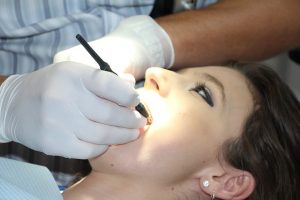
You’re told you need oral surgery. Perhaps you need to have some wisdom teeth extracted. Maybe you’ve suffered facial trauma and need other teeth extracted. Perhaps you need dental implants and require a dental bone graft done for them to be successful.
Are you feeling nervous? You don’t have to be. Thanks to modern advancements in sedation dentistry, oral surgery is actually quite painless. You’ll barely feel a thing!
As a licensed maxillofacial surgeon serving Cincinnati, Columbus, and Dayton, Dr. Puckett is certified to offer all forms of sedation dentistry for oral surgery. Your comfort and pain management is his top priority. He goes above and beyond to help you feel relaxed, comfortable, and painless.
What are your pain management options for oral surgery? Here’s a brief overview of the sedation dentistry we offer to make oral surgery painless.
Local Anesthetic
This is a minimally invasive procedure — the same pain treatment you’d expect to get during a dental appointment. An anesthetic (such as lidocaine or Novocaine) is injected in and around the surgery area. You’ll feel numb. Aside from the initial pinch, you really shouldn’t experience discomfort. If you do, don’t be afraid to tell your oral surgeon. We can always apply more. We want you to be comfortable. Don’t be shy!
Many of the treatments we do at our oral surgery clinic — including teeth extractions — can be done with local anesthetic alone. In fact, we can even remove your wisdom teeth with local anesthetic — though most patients prefer additional sedation methods. It’s really up to you!
Nitrous Oxide with Local Anesthetic
Nitrous oxide is a nice additive that can be administered during oral surgery to help you relax and ease your anxiety. It is generally done in conjunction with a local anesthetic. We typically use it for fairly simple oral surgeries, though we might use it for more complex procedures like wisdom teeth extraction if you prefer a local anesthetic over a higher form of sedation.
The nitrous is given to you in an oxygen mix through a rubber nozzle that gently fits over your nose. We can adjust the amount given to match your comfort and anxiety levels. Just ask — and don’t be shy!
IV Sedation
Commonly known as “twilight anesthesia,” intravenous (IV) sedation is a deeper form of anesthesia. You won’t technically be asleep but will be very groggy, with likely little to no memory of the oral surgery experience. You’ll be able to respond to commands, but you’ll generally be in a dreamlike condition, such as when you are woken up in the middle of the night but aren’t actually fully awake. IV sedation is administered through an intravenous catheter. Medicine is titrated to achieve a period of brief but effective sedation. Your vital signs are closely monitored during and after the procedure.
In general, you’ll feel extremely relaxed and completely unbothered by what is happening during the oral surgery experience.
General Anesthesia
When you think about being “put to sleep” during a surgical experience, you are thinking about general anesthesia. It’s our strongest sedation method available for oral surgery. You’ll experience a more profound anesthesia experience with no memory of the actual procedure.
We typically reserve general anesthesia for our most intense oral surgery procedures, including impacted wisdom tooth removal, dental implant placement, face or jaw reconstruction, or any larger oral surgical procedure.
You’ll be completely unconscious throughout the entire experience with no memory of the event. Bring a friend or family member with you during your appointment — you’ll need someone to drive you home as you’ll be very groggy following the treatment.
Relax! You’re in Good Hands
Dr. Puckett is strongly committed to making your oral surgery experience as painless as possible. We understand the idea of oral surgery can be intimidating, especially if you are being put under or experience anxiety. We do everything we can to make your visit as relaxed and comfortable as possible. Yes, oral surgery can — in fact absolutely should — be a painless experience. Relax! You’re in good hands. Your pain management is our top priority.
